Code of conduct in upper secondary schools in Vietnam
Code of conduct in upper secondary schools in Vietnam
According to Chapter 2 of Circular 06/2019/TT-BGDDT, the content of the code of conduct in upper secondary schools is as follows:
(1). General conduct rules
- Strictly adhere to legal regulations on the rights and obligations of citizens, officials, and public employees, teachers, workers, and students.
- Maintain a healthy, positive lifestyle, caring, sharing, and helping others.
- Protect and maintain the landscape of upper secondary schools; build a safe, friendly, green, clean, and beautiful educational environment.
- Management staff and teachers must wear formal, appropriate attire in the educational environment and activities; employees must wear attire suitable for the educational environment and the nature of their work; students must wear clean, neat clothing appropriate for their age and educational activities; parents and visitors to the school must wear appropriate attire for the educational environment.
- Do not wear inappropriate or offensive attire.
- Do not smoke, consume alcohol, or use prohibited substances in upper secondary schools as prescribed by law; do not engage in social evils.
- Do not use social media to disseminate, propagate, or comment on information or images that are contrary to customs, traditions, the Party's line, state policies, and laws, or that negatively affect the educational environment.
- Do not cheat, lie, slander, create discord, harass, coerce, threaten, or cause violence.
- Do not harm the health, honor, dignity of oneself, others, and the collective reputation.
(2). Conduct of upper secondary school management staff
- Conduct with students: Standard, easy-to-understand language; love, responsibility, tolerance; respect differences, treat fairly, listen, encourage, and motivate students. Do not insult, coerce, punish, or abuse.
- Conduct with other teachers and staff: Standard language, respect, encouragement, and motivation; seriousness, exemplary behavior, and teamwork; protect the reputation, honor, and dignity and promote the capacity of teachers and staff; unity, democracy, fairness, transparency. Do not be oppressive, cause difficulties, insult, bias, exploit, avoid responsibility, or cover up violations or shift blame.
- Conduct with students' parents: Standard language, respect, support, cooperation, sharing, and friendliness. Do not insult, cause difficulties, or exploit.
- Conduct with visitors to upper secondary schools: Standard language, respect, politeness, and propriety. Do not insult, cause difficulties, or inconvenience.
(3). Conduct of teachers
- Conduct with students: Standard, easy-to-understand language; praise or criticize accordingly; exemplary, tolerant, responsible, loving; respect differences, treat fairly, advise, listen, encourage, and motivate students; actively prevent school violence, build a safe, healthy, friendly educational environment. Do not insult, harm, exploit; do not coerce, bias, abuse, or infringe; do not ignore, avoid or cover up students' violations.
- Conduct with management staff: Respectful, honest, receptive language, actively propose ideas, and clearly express opinions; comply with instructions, directions, and assignments from leaders as required. Do not insult, cause disunity; do not ignore, avoid or cover up management staff violations.
- Conduct with colleagues and staff: Appropriate, honest, friendly, receptive, sharing, supportive language; respect differences; protect the reputation, honor, and dignity of colleagues and staff. Do not insult, be apathetic, cause disunity.
- Conduct with students' parents: Appropriate, honest, respectful, friendly, cooperative, sharing language. Do not insult, impose, exploit.
(4). Conduct with Visitors to upper secondary schools: Appropriate, respectful language. Do not insult, cause difficulties, or inconvenience.
(5). Conduct of staff
- Conduct with students: Standard language, respect, responsibility, tolerance, and help. Do not cause difficulties, inconvenience, insult, or violence.
- Conduct with management staff, teachers: Appropriate, honest, respectful cooperative language; perform assigned tasks. Do not avoid responsibility, insult, cause disunity, or exploit.
- Conduct with colleagues: Appropriate, cooperative, friendly language. Do not insult, cause disunity, avoid responsibility.
- Conduct with students' parents and visitors to upper secondary schools: Appropriate, respectful language. Do not insult, cause difficulties, or inconvenience.
(6). Conduct of students in upper secondary schools
- Conduct with management staff, teachers, and staff: Respectful, polite, honest, sharing, follow requirements as prescribed. Do not fabricate information; do not insult, harm the spirit, honor, dignity, or cause violence.
- Conduct with other students: Appropriate, friendly, honest, cooperative, helpful, and respectful of differences. Do not use foul language, curse, insult, cause disunity; do not fabricate or recruit; do not disseminate information to tarnish the honor, dignity of other students.
- Conduct with parents and relatives: Respectful, polite, honest, loving.
- Conduct with visitors to upper secondary schools: Respectful, polite.
(7). Conduct of students' parents
- Conduct with students: Appropriate, respectful, sharing, encouraging, friendly, loving language. Do not insult, abuse.
- Conduct with management staff, teachers, and staff: Respectful, responsible, cooperative, sharing. Do not fabricate information; do not insult the spirit, honor, dignity.
(8). Conduct of visitors to upper secondary schools
- Conduct with students: Appropriate, respectful, friendly language. Do not insult, abuse.
- Conduct with management staff, teachers, and staff: Appropriate, respectful. Do not fabricate information. Do not insult the spirit, honor, dignity.
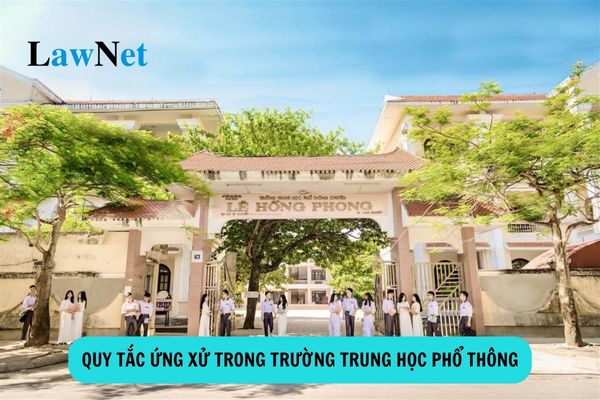
Code of conduct in upper secondary schools in Vietnam (Image from the Internet)
Through which methods are the Code of conduct in upper secondary schools in Vietnam disclosed?
According to Article 13 of Circular 06/2019/TT-BGDDT:
Responsibilities of Educational Institutions
Pursuant to this Circular, the head of the educational institution shall specifically regulate the Code of Conduct to be implemented in the educational institution.
Publicly disclose the Code of Conduct in educational institutions on the electronic information page or post it on the school's bulletin board; regularly propagate, thoroughly grasp the content of the Code of Conduct among management staff, teachers, staff, students, and related organizations and individuals.
Organize implementation, evaluation, revision, supplementation, perfection, and summary report of the implementation results of the Code of Conduct to the direct management level annually.
Conduct commendation and discipline work for individuals and groups in implementing the Code of Conduct as prescribed.
Thus, upper secondary schools shall publicly disclose the Code of Conduct through the electronic information portal or posting on the school's bulletin board.
What are principles for developing a Code of Conduct in lower secondary schools?
According to Article 3 of Circular 06/2019/TT-BGDDT, the development of the Code of Conduct inlower secondary schools must comply with the following principles:
- Comply with legal regulations; be in line with moral standards, customs, and the cultural traditions of the nation.
- Reflect core values: Kindness, respect, responsibility, cooperation, honesty in relationships of each member within the educational institution with others, with the surrounding environment, and with themselves.
- Ensure the orientation of moral education, cultural lifestyle, development of learners' qualities and abilities; enhance the professional ethics of management staff, teachers, and staff, as well as the responsibility of the heads of educational institutions.
- Be easy to understand, and implement; suitable for age, educational level, and cultural characteristics of each region.
- The development, amendment, and supplementation of the content of the Code of Conduct must be discussed democratically, objectively, openly, and agreed upon by the majority of members in the educational institution.
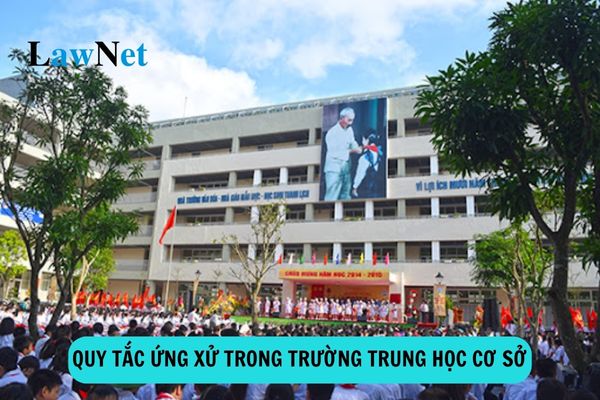
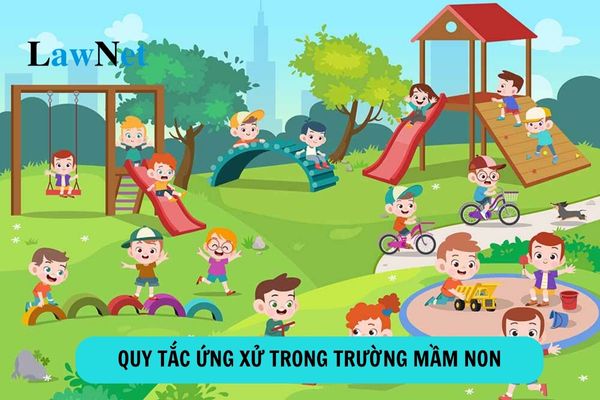
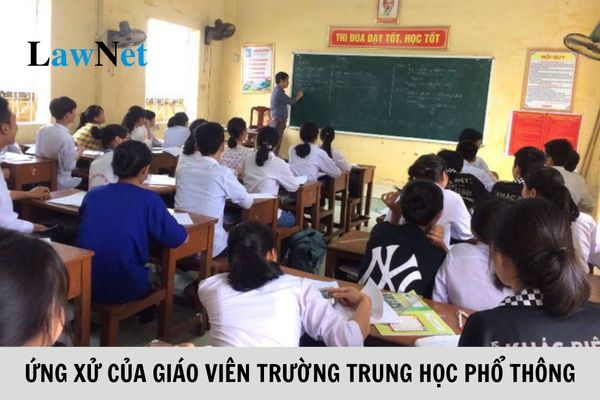
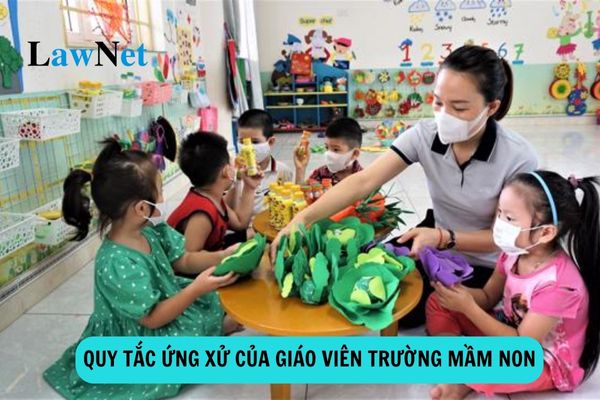

- What are the sample essays on sharing an experience with a family member for 6th-grade students in Vietnam? What elective subjects do 6th-grade students learn?
- Vietnam: What is Polymer? What is the grade at which the Chemistry curriculum covers Polymer?
- Vietnam: What are the sample social argumentative essays on artificial intelligence? What is the grade at which students initially write social argumentative essays?
- Vietnam: What are the sample discussions on students being late for school? What are the criteria for text corpus used in the 9th-grade Literature curriculum?
- Vietnam: When was the directive on national resistance given? What education level does 9th Grade fall under?
- Vietnam: What is the overview of industrial revolutions over periods in the 10th-grade History curriculum? What knowledge about industrial revolutions do 10th-grade students learn?
- What is the Plan for organizing professional training for English teachers in Ho Chi Minh City about?
- Vietnam: What are the sample outlines of a social argumentative essay on kindness for 9th-grade students? What are the kindness qualities required for 9th-grade students?
- Vietnam: What are the sample argumentative essays on respecting people's differences for 11th-grade students? What are the conditions for 11th-grade students to be eligible for grade advancement?
- Are students pursuing dance in Vietnam eligible for tuition reduction?

